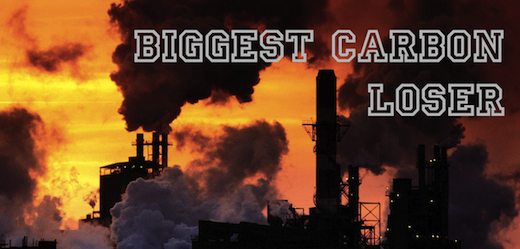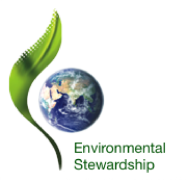Environmental Stewardship
The Environmental Stewardship Work Area helps us become responsible stewards of God's creation, and care for humankind. We
- Provide environmental education
- Encourage individual and corporate green living habits
- Help the church take steps to make our facilities more energy efficient and earth friendly
- Provide avenues for environmental social action
Help our church protect the environment
Donate your used cell phones & small electronics!
The Environmental Stewardship Work Area is conducting a recycling fundraiser. There’s nothing to buy. We are simply asking you to protect the environment by donating your used cell phones and small consumer electronics. Your used item(s) may be tax deductible and will be recycled in accordance with EPA regulations. 100% of the proceeds will help fund the First United Methodist Church’s change over to more environmentally friendly and economical light fixtures and lighting.
We are currently collecting the following items:
- Cell Phones
- Digital Cameras
- Digital Video Cameras
- Laptop Computers
- Electronic Book Readers
- Handheld Game Systems
- GPS Devices
- MP3 Player
Note: Please do not include any accessories (rechargers, earbuds, etc.) with your donations.
Drop off any of the above items you would like to recycle at the Collection Bin in the church office.
- Log in to post comments
Biggest Carbon Loser: Week 4
Commit to as many actions as possible to reduce your energy consumption and in friendly competition see who can score the most points in moving you and your family toward a lower carbon footprint. Report your score using the DGFUMC Contact Form (choose 'Environmental Stewardship' as the category). Here are the final action items.
Action Items
- Limit the length and temperature of showers (a family of 4 limiting shower time under 5 minutes can reduce 1,000 lb/ yr. CO2 - 2 pts.
- Install a motion detector on outdoor lights - 3 pts.
- Pull shades/ close drapes to reduce heat loss overnight- in summer pull shades to prevent direct sunlight through windows - 2 pts.
- Eliminate or reduce use of weed killers and fertilizer in the yard (the average American lawn uses more pesticides/ fertilizer per acre than any commercial crop) - 3 pts.
- Add more insulation to attics (and walls if accessible)- majority of homes are under- insulated - 10 pts.
- Car pool if mass transit not feasible - 2 pts.
- Keep car properly tuned- filters replaced - 3 pts.
- Take shorter driving vacations rather than flying - 3 pts.
- Buy electric or hybrid fuel efficient car getting at least 40 MPG (consider life cycle cost including increasing fuel costs over life of vehicle) - 20 pts.
- If eating out prioritize local restaurants - 1 pt.
- Choose concentrated and bulk items where appropriate - 1 pt.
- Avoid purchase of gifts that are neither wanted or needed just to have a gift - 1 pt.
- Log in to post comments
Biggest Carbon Loser: Week 3
During this month, commit to as many actions as possible to reduce your energy consumption and in friendly competition see who can score the most points in moving you and your family toward a lower carbon footprint. Report your score using the DGFUMC Contact Form (choose 'Environmental Stewardship' as the category). Here is the list of action items for week 3. Previous weeks can be found on the Going Green page.
Action Items
- During the summer, open windows overnight whenever temps drop below 70 degrees for free air conditioning - 1 pt.
- Replace all conventional light bulbs with compact fluorescent or LED - 1 pt/ bulb replaced
Clean or replace furnace air filter regularly - 2 pts. - Unplug cell phone and other chargers when not in use (a continuing energy loss is wasted if left plugged)- turn cell phone off overnight to reduce charging needed - 3 pts
- Close off any rooms and close heat registers for rooms not in regular use - 2 pts.
- Eliminate use of leaf blowers and power spray cleaners (rakes and brooms have worked successfully for thousands of years) - 1 pt.
- Caulk and weatherproof around windows/ doors to reduce air leaks - 4 pts.
- Bike to locations within a few miles when weather permits - 2 pts.
- Keep car tires inflated to 40 lbs. or at least recommended pressure - 2 pts.
- If more than one car in family, drive most fuel efficient car whenever possible - 2 pts.
- Return used batteries, CF bulbs, etc. for recycling while out - 1 pt.
- Bring your own re-useable bags to grocery store - 1 pt.
- For holidays and birthdays give your family and friends the gift of donations to a favorite charity - 1 pt.
- Log in to post comments
Biggest Carbon Loser: Week 2
During this month, commit to as many actions as possible to reduce your energy consumption and in friendly competition see who can score the most points in moving you and your family toward a lower carbon footprint. Report your score using the DGFUMC Contact Form (choose 'Environmental Stewardship' as the category). Here is the list of action items for week 2. Previous weeks can be found on the Going Green page.
Action Items
- Adjust your thermostat- recommended heating settings are 65- 68 degrees during the day and 55- 60 degrees overnight. Recommended cooling temperature is no lower than 78 degrees (setting thermostat at these recommended temperatures can reduce CO2 by 1,500 lb/ yr. - 5 pts.
- Do full loads of laundry and dish washing. Use cold water wash/ rinse for laundry (90% of the energy in doing laundry goes to heating water and only 10% to powering the machine) - 2 pts Replace all conventional light bulbs with compact fluorescent or LED - 1 pt/ bulb replaced
- Turn down hot water heater temperature to 120 degrees or medium temp. setting - 2 pts.
- Install electric outlet insulator pads on all outside walls - 1 pt.
- Add perennial and native plantings to the yard to gradually reduce lawn areas - 2 pts.
- Install a programmable thermostat to help with (1) above - 10 pts.
- Walk to any locations less than one mile - 2 pts.
- Turn car off if idling for more than 15 seconds (other than at stoplights)- reduces emissions as well as wear on car - 2 pts.
- Accelerate slowly- maintain MPH- can save 1,000 lb/ yr. CO2) - 2 pts.speed limit (20-30% energy savings driving 55 MPH vs. 75
- Combine trips- shop at closest stores - 2 pts.
- Buy products that use recyclable materials - 2 pts
- Avoid buying bottled water- get everyone in the family a water bottle to fill and take along when travelling - 1 pt.
- Log in to post comments
Biggest Carbon Loser: Week 1
Given the ever increasing impact of climate change caused by greenhouse gas emissions, we invite everyone to join in a program to reduce our energy consumption, save money and protect the health and well- being of people and our planet - all at the same time.
During this coming month, commit to as many actions as possible to reduce your energy consumption and in friendly competition see who can score the most points in moving you and your family toward a lower carbon footprint.
Here is the list of action items for week 1. Report your score using the DGFUMC Contact Form (choose 'Environmental Stewardship' as the category). More details can be found on the Going Green page.
Action Items
- Turn off lights, TV and other electronics whenever you leave the room for more than a minute - 2 pts.
- Clean or replace furnace air filter regularly - 2 pts.
- Reduce waste generation and recycle all aluminum, glass, plastic, paper, etc. (reducing half of a standard size garbage can per week can reduce about 2,000 lb/ yr. CO2 - 2 pts.
- Plant new trees to commemorate births of children/ grandchildren- they not only sequester carbon but also provide shade, retain water and purify the air - 5 pts.
- Tune-up furnace/ A/C at least every other year (saves 300 lb/ yr. CO2) - 3 pts.
- Replace attic fan with solar powered fan (free energy for life- easier installation) - 10 pts.
- Consider organic cleaning products such as vinegar, borax, baking soda - 1 pt.
- Eat less meat (for each day of the week switching to vegetarian can save 700 lb/ yr. CO2) - 5 pts.
- Buy foods locally - 2 pts.
- Remove unneeded heavy objects from trunk to improve mileage - 1 pt.
- Combine car trips while you’re out to reduce vehicle miles travelled (with planning most people can reduce VMT 20% saving 1,500 lb/ yr. CO2) - 3 pts.
- Use mass transit whenever feasible, especially commuting to work- 5 pts.
- Log in to post comments
Biggest Carbon Loser

Given the ever increasing impact of climate change caused by greenhouse gas emissions, especially carbon dioxide (CO2), producing more forest fires, drought conditions, severe weather occurrences, extended heat waves and the spread of destructive pests and disease, all of us need to help protect God’s creation through actions to reduce our energy consumption and thereby to reduce our carbon footprint. Join in a program to reduce our energy consumption, save money and protect the health and well- being of people and our planet - all at the same time.
During the next month, commit to as many actions as possible to reduce your energy consumption and in friendly competition see who can score the most points in moving you and your family toward a lower carbon footprint. Report your score using the DGFUMC Contact Form (choose 'Environmental Stewardship' as the category).
Let’s all work together to see who can be the biggest carbon loser and best protect God’s creation.
- Log in to post comments
Environmental Stewardship Corner
We’ve all seen wind turbines as we drive through the Midwest. Yet renewable energy comprises only about 3% of the electricity generated in our country. A 2008 study by the American Council on Renewable Energy indicates that using currently available renewable technologies such as wind, solar, geothermal and biomass that we could readily achieve 25% renewable generation by 2025. Other studies indicate that investments in renewable energy technologies create about 4 times as many jobs per dollar invested than expanding coal, oil or gas investments. Clean renewable energy technologies not only reduce greenhouse gas emissions but also replace acid gas and toxic air emissions from coal-fired generation, saving lives and reducing health care costs. As our elected officials debate legislation for economic recovery and future energy policies for our country, please take the time to share your views on the direction we should proceed, keeping in mind God’s call to protect and preserve all of God’s creation.
- Log in to post comments
Environmental Stewardship Corner
For eight days this January, a group of students and I experienced the rain forest, cloud forest and volcanic regions of Costa Rica. This small country covers only 0.03% of the earth's surface, and holds more than 5% of all life forms. The effects of global warming are dramatic in this country. Species are moving higher in elevation and ecosystems are changing. Plant and animal species are becoming rarer and possibly extinct. Consequently, it is not surprising that Costa Rica has lofty sustainability aspirations, wanting to be the first developing country to become carbon neutral, i.e., have zero net output of carbon dioxide by 2021. Costa Rica is moving toward achieving that goal by having 95% of its electrical energy from renewable sources and protecting its rain forests. One person can make a difference. I strongly encourage you to visit the website: http://www.epa.gov/sustainability/ to see what you can do to move the U.S. toward sustainability. Don’t forget the 3 R’s: Reduce, Recycle and Reuse.
- Log in to post comments
Pages
Recent News
Sunday Worship Service - July 30 at 10:00 am
July 30, 2023 - 9:51am
Sunday Worship Service - July 23 at 10:00 am
July 23, 2023 - 9:48am
Sunday Worship Service - July 16 at 10:00 am
July 16, 2023 - 10:17am
Vacation Bible School
July 14, 2023 - 10:10pm
Sunday Worship Service - July 9 at 10:00 am
July 9, 2023 - 9:53am





